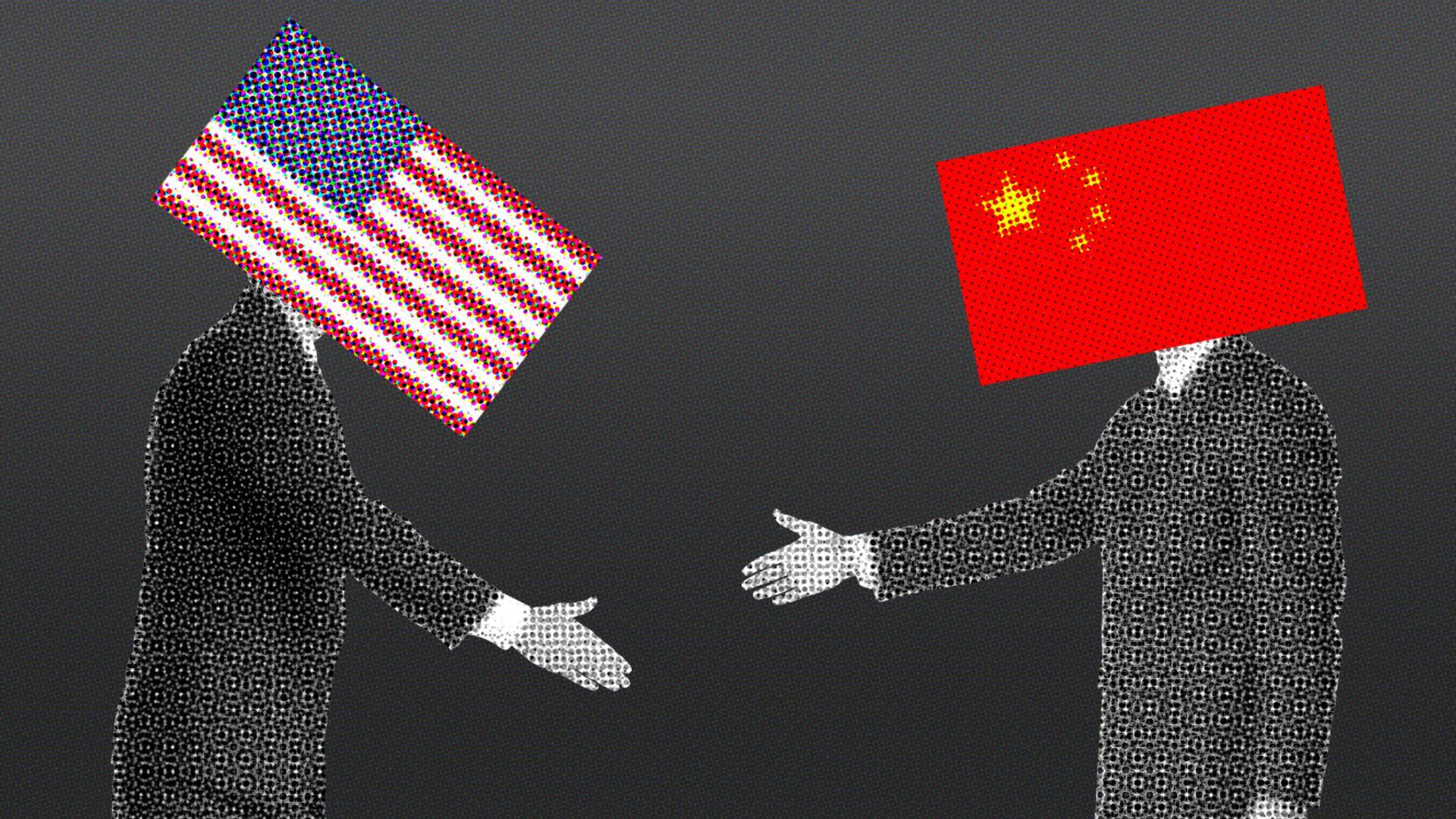Investors signal they hate Trump's "Phase 1" China trade deal
Add Axios as your preferred source to
see more of our stories on Google.

Illustration: Sarah Grillo/Axios
Wall Street was bursting at the seams with excitement about a trade deal between the U.S. and China — until details of the deal were revealed.
The big picture: China agreed to more than double its annual purchases of U.S. agriculture, up to $50 billion and made yet-to-be-determined concessions on intellectual property rights while the U.S. agreed not to implement its planned Oct. 15 tariffs of 30% on Chinese imports.
What happened: The S&P 500 was flirting with a 2% rise for the day, and then details of the agreement started leaking out and the market's gains leaked with them.
Between the lines: The S&P closed 1.1% higher, and the reversal looked like a typical bout of "buy the rumor, sell the news," but comments about the deal from top strategists and money managers suggest many view the agreement as too little, too late.
What they're saying: A flood of investment strategists and fund managers added their 2 cents. Goldman Sachs' analysts see a 60% chance more tariffs are put in place by the end of the year and expect the drag on manufacturing to continue.
- "The manufacturing industry has slowed to the point of stagnation," Goldman analysts said in a note. "While it accounts for a modest share of the economy, many investors worry that negative spillovers to the service sector and consumer confidence will drag down the healthy parts of the economy too."
- “There is not yet a viable path to existing tariffs declining, and tariff escalation remains a meaningful risk,” Morgan Stanley analysts said in a note to clients. “Thus, we do not yet expect a meaningful rebound in corporate behavior that would drive global growth expectations higher.”
- “The market has basically been held hostage by the trade negotiations,” Bryn Mawr Trust CIO Jeffrey Mills said on CNBC Friday. “I don’t know that we’re out of the woods yet with China. We still have trade negotiations going on with the EU [and] the ratification of NAFTA 2.0.”
- “Investors had high hopes for some form of mini-deal in the weeks before the meeting, and Friday’s announcement has at least been partially, if not fully, priced in,” JPMorgan equity analysts said in a note, adding that the deal is unlikely to have a material effect on the already slowing U.S. manufacturing and services sectors.
- “Trump’s statement that ‘We are near the end of the trade war’ is not plausible to us,” analysts at Evercore wrote in a note. “We do not expect tariff cuts in 2020 – but are ready to be favorably surprised."
- “I don’t think this gets us to Christmas,” UBS' NYSE floor director Art Cashin told CNBC. “I think it could be a temporary truce that wouldn’t last very long.”
Go deeper: Trump says U.S. and China reach partial trade agreement
